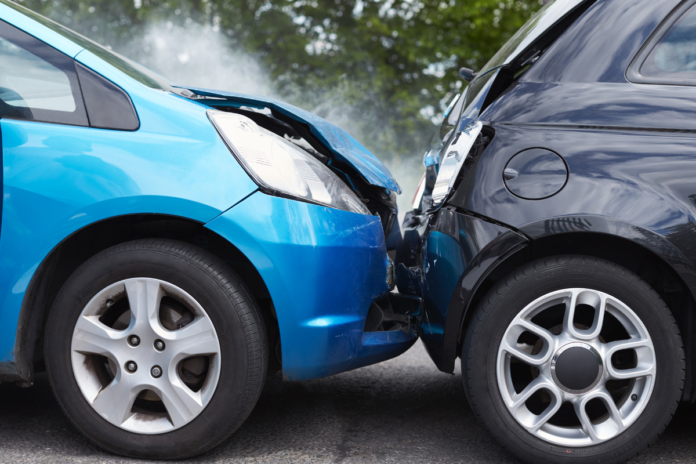Every year, millions of people are involved in car accidents, making it a serious concern in terms of public health and safety. Beyond the immediate physical dangers and the burden on healthcare systems, car accidents often carry hidden costs that aren’t as frequently discussed: the psychological effects on those involved. While the industry has made strides in improving vehicle safety and post-collision response, understanding and addressing the mental and emotional aftermath of car crashes remains an equally important aspect of thorough recovery.
Consulting with a car crash lawyer can be an integral part of this process, ensuring that legal rights are protected while allowing individuals to focus on their physical and psychological recovery. Such incidents not only alter lives physically but can also leave lasting emotional scars, influencing overall well-being and daily functioning. This article offers an exploration into the less visible, but no less important, psychological impact of car accidents. Contrary to the common focus on physical injuries and the technical aspects of road safety, we examine the profound emotional disturbances that can linger long after the physical wounds have healed.
Post-Traumatic Stress Disorder
The disconcerting truth for many people who have experienced car accidents is that such an event can initiate the start of post-traumatic stress disorder, often referred to as PTSD. This anxiety disorder may appear quickly or even months after the incident, presenting with troubling symptoms like recurring flashbacks of the accident, unwanted thoughts, and harrowing dreams that repeat the occurrence. Those affected might also struggle with intense anxiety that is readily provoked by anything that reminds them of the distressing event, which can result in avoiding driving or being in a vehicle.
These symptoms interfere with everyday activities, causing considerable upset and reducing the ability to carry out normal duties. Acknowledging that PTSD is a normal response to a highly stressful situation is the initial step toward recovery. Noticing the symptoms promptly and obtaining assistance from mental health experts can significantly enhance someone’s life following such a harrowing event.
Depression and Anxiety
The psychological toll of a car accident can manifest in the form of depression and anxiety, adding to the burden of physical recovery. It’s not uncommon for those involved to develop a persistent sense of fear related to driving, manifesting in some individuals as a refusal to get behind the wheel or trepidation as a passenger. This anxiety can also spiral into a deeper depression, where individuals might grapple with persistent feelings of guilt, questioning if there was something they could have done to avoid the accident, or worthlessness as they struggle to engage in everyday activities.
The unsettling mixture of fear, guilt, and sadness can profoundly alter a person’s quality of life. It’s essential to recognize these feelings as valid responses to trauma and encourage those affected to seek appropriate therapeutic interventions that can help them move through these complex emotions. Creating an environment supportive of mental health recovery is just as important as addressing any physical injuries sustained.
Loss of Confidence
After a car accident, individuals often face an unexpected challenge: a newfound lack of confidence in their driving abilities or an unsettling fear when riding as a passenger. This crisis of confidence can quietly seep into one’s life, creating waves that reach well beyond the driver’s seat. Ordinary commutes can transform into sources of intense anxiety, and the idea of driving again can cause an aversion that interferes with social plans and necessary day-to-day tasks.
Interactions that depend on travel, such as visiting friends or going to events, may decrease as the person struggles with this internal conflict. The emotional toll of feeling unsafe in what was once a secure and recognizable setting presents a significant obstacle to restoring one’s usual way of life. Providing support and understanding to those dealing with such fears not only acknowledges their feelings but also acts as an essential step towards helping them reclaim independence on the road.
Survivor’s Guilt
The phenomenon of survivor’s guilt is a poignant reality for those who walk away from car accidents relatively unscathed, especially when others have suffered tragic injuries or lost their lives in the same incident. This guilt can weigh heavily on survivors, prompting a tumult of questions about why they were spared and whether they could have done something to prevent the misfortune that befell others.
In the aftermath, survivors might find themselves wrestling with a sense of isolation as they feel they cannot relate to others who haven’t experienced such a traumatic event. They may also grapple with self-blame, irrationally taking on responsibility for the accident’s outcomes, despite factors beyond their control. Acknowledging the psychological pain of survivor’s guilt is important, as it is a substantive obstacle to emotional healing. Offering empathy and access to counseling services can provide a lifeline to those struggling, helping them manage their complex emotions and begin the process to mental recovery.
Coping Mechanisms and Recovery
Recovering after a car accident involves more than physical healing; individuals must also address the invisible wounds inflicted by emotional trauma. Professional help is essential in this process, with options such as therapy providing a safe space to express feelings and confront the residual fear and distress. Cognitive-behavioral therapy, in particular, has proven efficacy in helping individuals reframe negative thought patterns and develop coping strategies.
Medication, when prescribed by a health care professional, can alleviate symptoms of depression or anxiety, allowing those affected to participate more fully in therapy and daily life. Further, joining a support group can be a source of comfort, providing connections with others who have shared similar experiences and understand the challenging aspects of post-accident emotions. These combined approaches form a diverse treatment plan that supports lasting psychological recovery, enabling individuals to regain a sense of control and move forward with resilience.
In conclusion, the ramifications of car accidents extend beyond the visible injuries, deeply affecting the mental health of those involved. Throughout this article, we’ve uncovered the pervasive nature of PTSD, depression, anxiety, and the difficult encounter with survivor’s guilt, all of which signify how a single moment can provoke long-lasting psychological turmoil. With the clear evidence that such impacts are neither rare nor insignificant, we stress the urgent need for exhaustive support systems. Recognizing the signs of mental distress and taking steps towards professional help, such as therapy and medication, can be life-altering.









